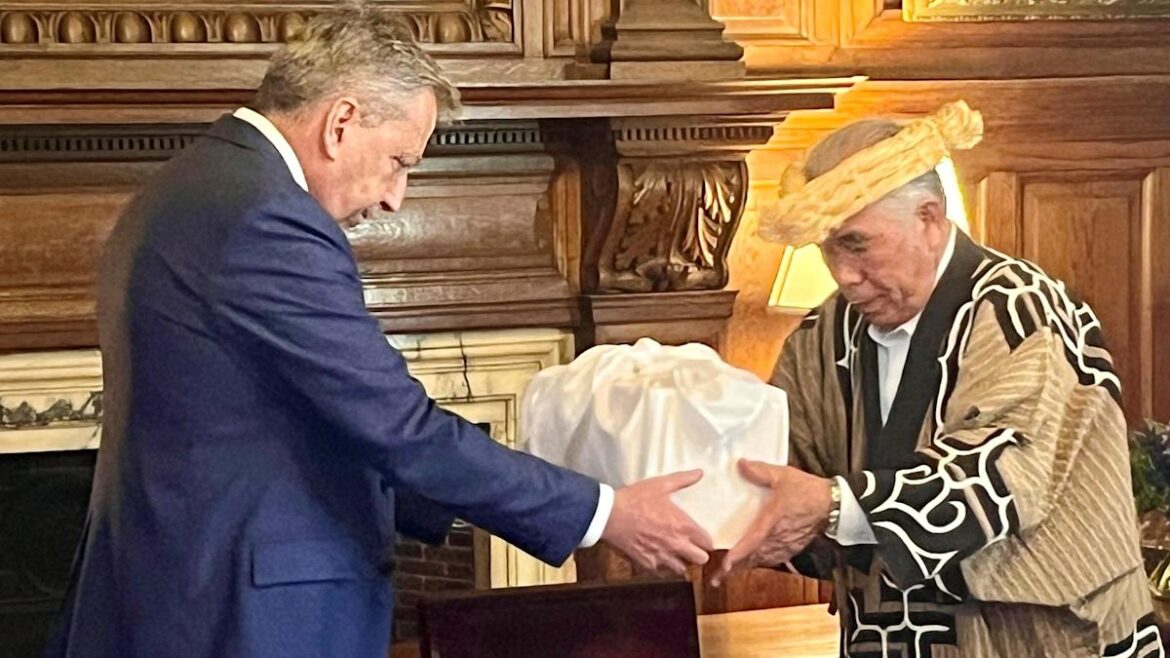Three skulls from Japan that were given to Edinburgh University in 1913 have been returned to the indigenous community where they originated.
The remains of the Ainu people – donated by Scottish anthropologist Dr Neil Gordon – were held in the university’s anatomy museum.
Dr Munro lived and died among the Ainu while studying their culture in northern Japan.
The skulls were repatriated in a traditional Ainu ceremony at the university. They will be interred at a museum and memorial site in Hokkaido.
Dr Munro graduated from Edinburgh university’s medical school, before becoming a cruise ship doctor then director of Japan’s Yokohama Juzen Hospital.
He became interested in anthropology and archaeology and moved to the village of Nibutani in Hokkaido to be among the Ainu community.
The Ainu lived in self-governing communities across the island and maintained their own traditions under Japanese imperial rule.
Dr Munro sent more than 2,000 artefacts, materials and samples of human remains back to the university and the National Museum of Scotland.
PhD student Nathan Sydenham said Dr Munro had “empathised” with the Ainu people and their struggle to preserve their culture.
He said: “He saw parallels between the Hokkaido Ainu and their plight and what was happening with the British empire
“Dr Munro had a real affinity with them. The Ainu were starting to lose their traditions and values. He was annoyed about that.”
The Ainu language is now recognised by UNESCO as “critically endangered,” with only a handful of fluent speakers remaining.
Mr Sydenham said Dr Munro’s fourth and final wife was a Japanese national who helped him in his understanding of the Ainu culture.
Dr Munro died in Nibutani in 1942.
In 2001, Japanese senator Kayano Shigeru – the first of Ainu origin to be elected – visited the Munro clan in Scotland and issued a posthumous thanks for Dr Munro’s support of the Ainu people.
Masaru Okawa, executive director of the Hokkaido Ainu Association, said the Edinburgh skulls should be returned to Japan for “respectful memorialisation”.
He said: “We can only imagine the feelings of our ancestors who spent many years in foreign lands, but we believe they are pleased to return home.
“We are committed to continuing to honour the spirits of our ancestors with dignity, following the traditions handed down through generations.”
The remains will be buried at a memorial site in the Upopoy National Ainu Museum and Park in Shiraoi.
Prof Tom Gillingwater, Edinburgh University’s chairman of anatomy said repatriations were an important part of efforts to care for historical collections.
He said: “Rather than being viewed as a diminishment of the University’s collections, they represent an important opportunity for the University to work with communities across the world in order to build new relationships and friendships.
“We are honoured to have been able to play a part in returning these remains to the Ainu community.”
Edinburgh University returned the skulls of four Mudan warriors to Taiwan in 2023.


AloJapan.com